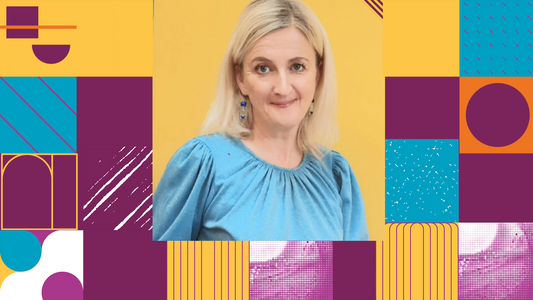Five common causes of a late period when you're not pregnant.
For many women, a late period can bring on a lot of questions, concern, or even a sense of panic. You may track your cycle with apps or calendars, or just have a general sense that your period should be here by now. But what happens when your period is late, but you know you’re definitely not pregnant?
Maybe you’ve ruled out pregnancy through a test (just to be sure). Or perhaps you’re not sexually active and know that pregnancy isn’t possible. From there, you’ll be wondering: if I’m definitely not pregnant, why is my period late?
Why your period may be late when you’re not pregnant
Periods can be late for a whole host of reasons, most of which are completely benign and temporary.
Note: If you are concerned, it’s always best to speak with a healthcare professional. An irregular cycle may be a symptom of PCOS, endometriosis or other conditions, which may require treatment.
Your period will become irregular when you enter peri-menopause and from there, menopause. While early menopause in your 20s and 30s is possible, it’s a rare condition.
It’s also important to remember that ‘typical’ periods take place every 28 days. Still, a cycle that ranges from 21 days to 35 days is still considered within a typical range.
So if you’re not pregnant and you’re not in early menopause, what are other reasons behind a disruption in your cycle?
Stress can cause a delayed period
Stress can play havoc on your hormones and daily routine. In fact, stress can even affect the part of your brain responsible for regulating your period — your hypothalamus. Furthermore, stress can lead to illness or weight gain/loss, all of which can impact your cycle.
If you’re stressed, try practicing relaxation techniques and making lifestyle changes. Adding more exercise to your regimen will help, as will eating a balanced diet.
Your bodyweight and your period
Having a bodyweight more than ten percent below what’s considered a ‘normal’ BMI range can stop ovulation. If you’re struggling to keep your weight within a typical range, you should speak to a healthcare provider. Women who participate in extreme exercise or professional sports may find that their periods stop or become irregular. If you tip into the ‘obese’ range for your height, you may find that your cycle is disrupted as well.
If you feel your weight is having an affect on your health, be sure to talk to your healthcare provider.
Polycystic ovary syndrome (PCOS) and your period
Polycystic ovary syndrome (PCOS) is a condition that causes your body to produce more of the hormone androgen. Cysts form on the ovaries as a result. This can make ovulation irregular or stop it altogether.
Other hormones, such as insulin, can also get out of balance when you struggle with PCOS, as insulin resistance is associated with PCOS. Treatment for PCOS focuses on relieving symptoms. Your doctor may prescribe an oral contraceptive or other medication to help regulate your cycle.
Hormonal Birth Control and your period
You may experience a change in your cycle when you go on or off birth control. Birth control pills contain hormones such as estrogen and progestin, which will impact how your ovaries release eggs. It can also take up to six months for your cycle to become consistent again after stopping the pill. Other types of hormonal contraceptives that are implanted or injected can cause missed periods, too.
Thyroid issues and your period
An overactive or under-active thyroid gland could also be the cause of late or missed periods. The thyroid regulates your body’s metabolism, so hormone levels can be affected as well. Thyroid issues can usually be treated with medication. After treatment, your period will likely return to normal.
If you’re concerned that your period is late and you’re definitely not pregnant, it is worth talking to your healthcare provider. A regular cycle is an indicator of good health, so if you’re experiencing an irregular cycle, it may be indicative of an underlying health issue.
Lacking in nutrients and your period
Make sure you're getting the right vitamins and minerals including magnesium, zinc and B vitamins. Key For Menstrual contains 38 nutrients that support daily wellness, a healthy cycle and provide natural ingredients for period symptom relief.













